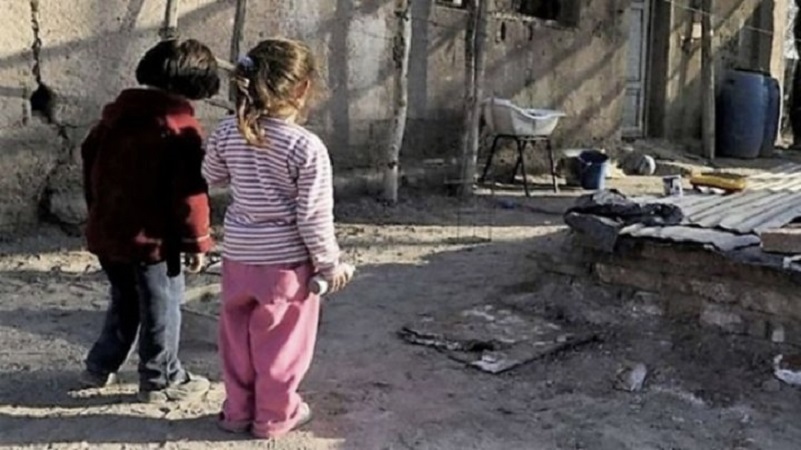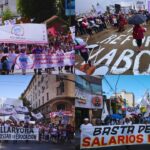
Among the most shocking data from the report on poverty and indigence published this Thursday by National Institute of Statistics and Censuses (Indec) affecting 39.2% of the population, is the rise in child poverty.
In the second half of 2022 poverty affected 54.2% of childrencovering some 6 million children under 15 years of age, while in the same semester of the previous year it had been 51.4%. This implies a jump around 360,000 girls, boys and adolescents who live in homes that cannot cover the cost of the Basic Basket with their income.
#DatoINDEC
In the 2nd semester of 2022, poverty was 54.2% among children under 15 years of age; 45% in people from 15 to 29; 35% in those from 30 to 64; and 14.5% in people over 65 https://t.co/ylIs2IPUGh pic.twitter.com/BPN06F675I— INDEC Argentina (@INDECArgentina) March 30, 2023
In this way, child poverty levels are higher than those of 2019, prior to the pandemic, and 2016, when the last series published by INDEC began.
Likewise, homelessness also reached alarming levels, affecting 12% of children. This means around 1.3 million who cannot cover the minimum food levels.
“The measurement of poverty with the poverty line (LP) method consists of establishing, based on household income, whether these have the capacity to satisfy -through the purchase of goods and services- a set of food and non-food needs considered essential”, explains the INDEC report.
As the data shows, in the last year prices accelerated but the income of the majority of workers lag behind. Likewise, job insecurity increased, where 8 out of 10 new jobs are informal, and more and more poor workers do not make ends meet. according to Social Debt Observatory of the UCA, 3 out of 10 employed workers are poor, among which the phenomenon of registered workers who do not cover the Basic Basket is also increasing.
Children end up paying the unfortunate cost of a fiscal adjustment policy that liquefies budget items in social assistance, family allowances, AUH, benefits and retirement from the Anses, as well as in Education, Health and Housing, and salary adjustment. This policy has as its main objective meet IMF adjustment targets and to do it without affecting the interests of the large economic groups, the landowners, the banks, the debt speculators, to whom the Government permanently grants all kinds of benefits such as the soybean dollar and the sale of dollar bonds in the hands of the Anses.
He government of the Front of All denounced the IMF debt contracted by Macri, but decided to renegotiate the agreement and submit the country to the adjustment requirements of the Fund. He promised to benefit the retirees and not the banks and fill the fridge, but far from it, the ordering of the economy behind guaranteeing the payment of the debt worsened the living conditions of the working class.
It is necessary reject the agreement with the IMF and ignore the illegitimate debt through popular mobilization, together with a set of national defense measures that prevent capital flight and allow control of the strategic levers of the economy in the hands of workers, such as the nationalization of banks and the monopoly of trade abroad.
Source: www.laizquierdadiario.com

